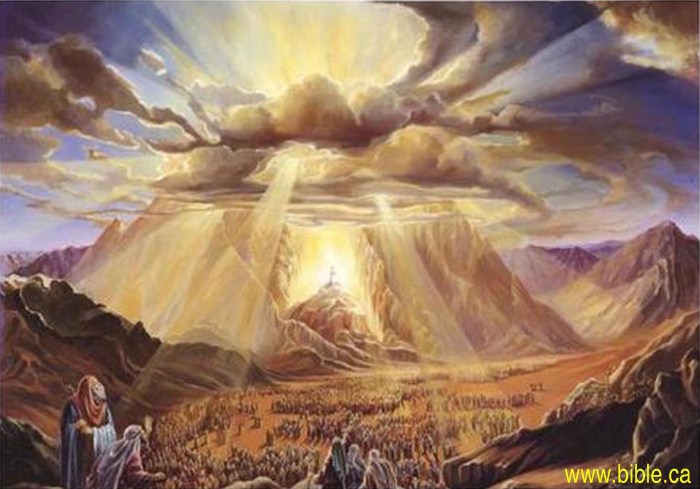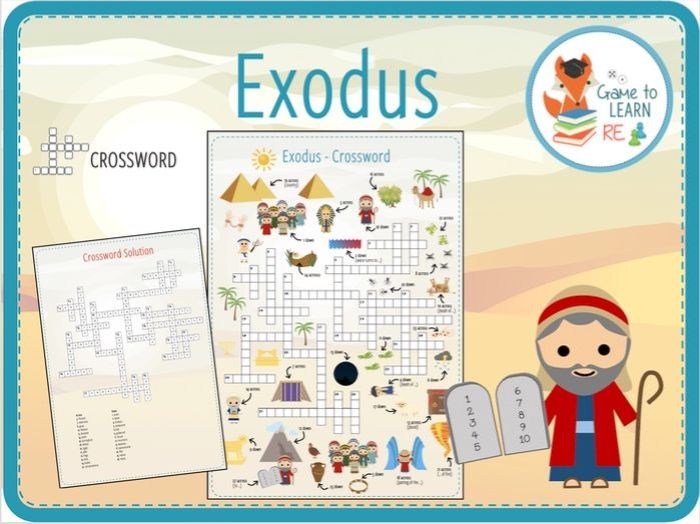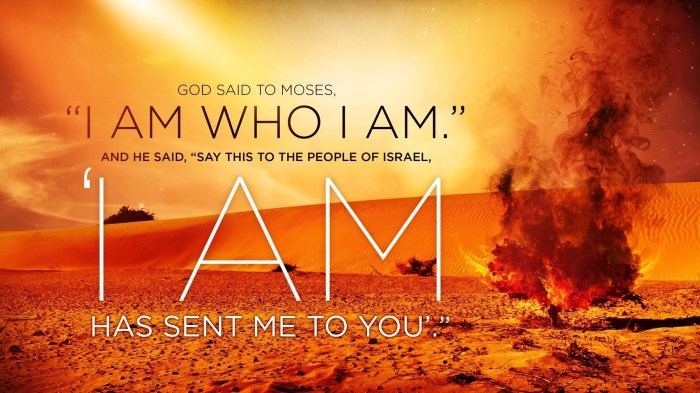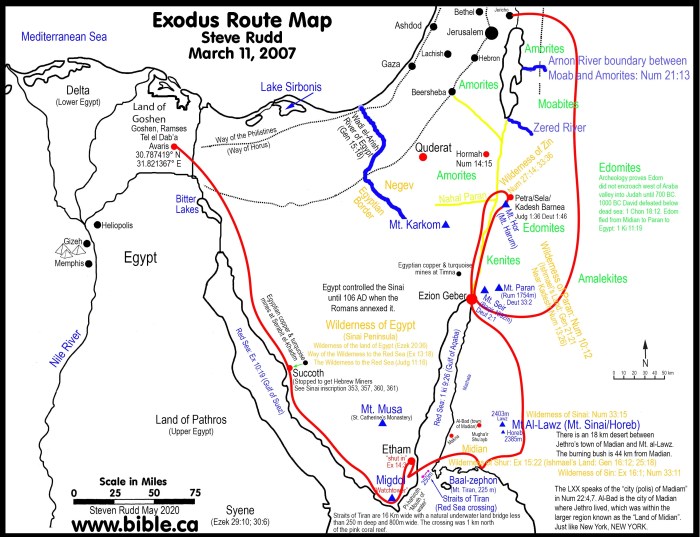The tenth plague, as referenced in the “one of 10 in exodus crossword” clue, holds a pivotal place in the biblical narrative of Exodus. It stands as a culmination of the divine retribution upon Egypt and a decisive moment in the liberation of the Israelites.
The plague brought about the death of all the firstborn in Egypt, both human and animal, while sparing the Israelites who had marked their doorposts with the blood of a lamb. This event served as a powerful demonstration of God’s power and the fulfillment of his promise to deliver his people from bondage.
Exodus and the Ten Plagues: One Of 10 In Exodus Crossword

The ten plagues of Egypt, as described in the biblical book of Exodus, hold profound significance in the narrative of the Israelites’ liberation from slavery and the establishment of their covenant with God. These devastating events were a pivotal moment in the story, serving multiple purposes.
The plagues were orchestrated by God as a demonstration of his power and authority over the Egyptian deities and as a means of compelling Pharaoh to release the Israelites from bondage. Each plague targeted a specific aspect of Egyptian life, from their water sources to their livestock and ultimately to the lives of their firstborn sons.
Order and Purpose of the Plagues, One of 10 in exodus crossword
The order of the plagues was carefully chosen to escalate in severity, each one building upon the impact of the previous. The initial plagues, such as the turning of water into blood and the infestation of frogs, were designed to disrupt daily life and demonstrate God’s control over the natural world.
As Pharaoh remained obstinate, the plagues intensified, targeting Egypt’s economy and infrastructure. The plagues of locusts and darkness devastated crops and plunged the land into chaos. The final and most devastating plague, the death of the firstborn, served as a decisive blow, compelling Pharaoh to finally release the Israelites.
Impact on the Egyptians and Israelites
The plagues had a profound impact on both the Egyptians and the Israelites. For the Egyptians, they brought devastation and suffering, weakening their economy and undermining their faith in their gods. The death of the firstborn was a particularly traumatic event, causing widespread mourning and fear.
For the Israelites, the plagues served as a demonstration of God’s protection and favor. They were spared from the worst effects of the plagues and witnessed firsthand the power of their God. The plagues also strengthened their resolve to escape slavery and establish their own nation.
The Tenth Plague and the Death of the Firstborn

The tenth and final plague was the most devastating of all. God commanded Moses to instruct the Israelites to sacrifice a lamb and apply its blood to the doorposts of their houses. The blood would serve as a sign to the Lord, who would “pass over” the houses marked with blood and spare the firstborn sons inside.
That night, the Lord struck all the firstborn in the land of Egypt, from the firstborn of Pharaoh to the firstborn of the animals. But the Israelites were spared, protected by the blood of the lamb.
The Significance of the Blood of the Lamb
The blood of the lamb represented the life of the firstborn son. By applying the blood to the doorposts, the Israelites were symbolically offering their firstborn to God in place of the Egyptian firstborn.
The Impact of the Tenth Plague
The tenth plague had a profound impact on both the Israelites and the Egyptians. For the Israelites, it was a night of liberation. They were finally free from slavery and could leave Egypt.
For the Egyptians, the tenth plague was a devastating blow. They had lost their firstborn sons, the future of their nation. The plague also weakened the Egyptian economy and military, making it easier for the Israelites to escape.
The Passover Ritual

The Passover ritual, also known as Pesach, is a significant religious and cultural observance in Judaism. It commemorates the Israelites’ liberation from slavery in Egypt, as recounted in the biblical book of Exodus.
The Passover celebration involves a series of rituals and customs, including the preparation and consumption of a special meal, the Seder.
Preparation of the Seder Meal
The Seder meal is a symbolic representation of the Israelites’ journey from slavery to freedom. It includes:
- Matzah:Unleavened bread that represents the bread that the Israelites ate during their hasty departure from Egypt.
- Maror:Bitter herbs that symbolize the bitterness of slavery.
- Charoset:A sweet mixture of fruits, nuts, and honey that represents the mortar used by the Israelites to make bricks during their enslavement.
- Lamb or Goat:A sacrificial animal that symbolizes the lamb that was slaughtered and its blood used to mark the Israelites’ homes during the tenth plague.
- Four Cups of Wine:These cups are filled and drunk at specific points during the Seder, each representing a different stage of redemption.
Historical and Religious Significance
The Passover celebration holds immense historical and religious significance for Jews. It serves as a reminder of their ancestors’ liberation from slavery and the establishment of the covenant between God and the Israelites.
The Passover ritual also symbolizes the themes of freedom, hope, and redemption. It is a time for reflection, gratitude, and the renewal of faith.
Role in Jewish Tradition
The Passover ritual is a central pillar of Jewish tradition. It is observed annually by families and communities around the world, strengthening their cultural and religious identity.
The Seder meal is an opportunity for families to gather and retell the story of Exodus, passing on the tradition and values to younger generations.
The answer to “one of 10 in exodus” in a crossword puzzle could be PLAGUE. Speaking of crosswords, have you heard of the troops at sea crossword clue ? It’s a tricky one, but with a little lateral thinking, you’ll get it in no time.
But getting back to the exodus crossword, the answer to “one of 10” is indeed PLAGUE.
The Exodus and the Formation of the Israelite Nation

The Exodus marks a pivotal moment in the history of the Israelites, as they embarked on a journey out of slavery in Egypt and towards the formation of their own nation.
Challenges and Obstacles
The journey was fraught with challenges and obstacles. The Israelites faced harsh conditions, including a lack of food and water, as well as the relentless pursuit of the Egyptian army.
Significance for Jewish Identity and Religion
The Exodus played a profound role in shaping Jewish identity and religion. It became a foundational event in their collective memory, symbolizing their liberation from oppression and their covenant with God. The Passover ritual, established during the Exodus, continues to be observed as a commemoration of their deliverance.
The Ten ments and the Covenant

At Mount Sinai, Moses received the Ten ments from God. These ments, inscribed on two stone tablets, served as the foundation of the covenant between God and the Israelites. The Ten ments embodied moral and ethical principles that guided the Israelites’ behavior and beliefs.
The Ten ments
- You shall have no other gods before Me.
- You shall not make for yourself a carved image, or any likeness of anything that is in heaven above, or that is in the earth beneath, or that is in the water under the earth.
- You shall not take the name of the Lord your God in vain.
- Remember the Sabbath day, to keep it holy.
- Honor your father and your mother.
- You shall not murder.
- You shall not commit adultery.
- You shall not steal.
- You shall not bear false witness against your neighbor.
- You shall not covet your neighbor’s house; you shall not covet your neighbor’s wife, or his male servant, or his female servant, or his ox, or his donkey, or anything that is your neighbor’s.
The Ten ments emphasized the importance of monotheism, respect for authority, personal integrity, and social justice. They provided a moral compass for the Israelites and laid the foundation for their legal and social systems.
The Covenant
The covenant between God and the Israelites was a solemn agreement that established a special relationship between them. In return for obeying the Ten ments and adhering to God’s laws, the Israelites were promised blessings and protection. The covenant also required the Israelites to acknowledge God as their sovereign and to worship Him alone.
The covenant had a profound impact on the Israelites’ identity and their relationship with God. It shaped their beliefs, practices, and their understanding of their role in the world.
Q&A
What was the significance of the blood of the lamb in the tenth plague?
The blood of the lamb served as a sign of protection for the Israelites. When the angel of death passed over Egypt, it would “pass over” the houses marked with the blood, sparing the firstborn within.
What is the historical and religious significance of the Passover celebration?
Passover commemorates the Israelites’ liberation from slavery in Egypt. It is a time of remembrance and celebration, and it also serves as a reminder of God’s faithfulness and the importance of following his commandments.